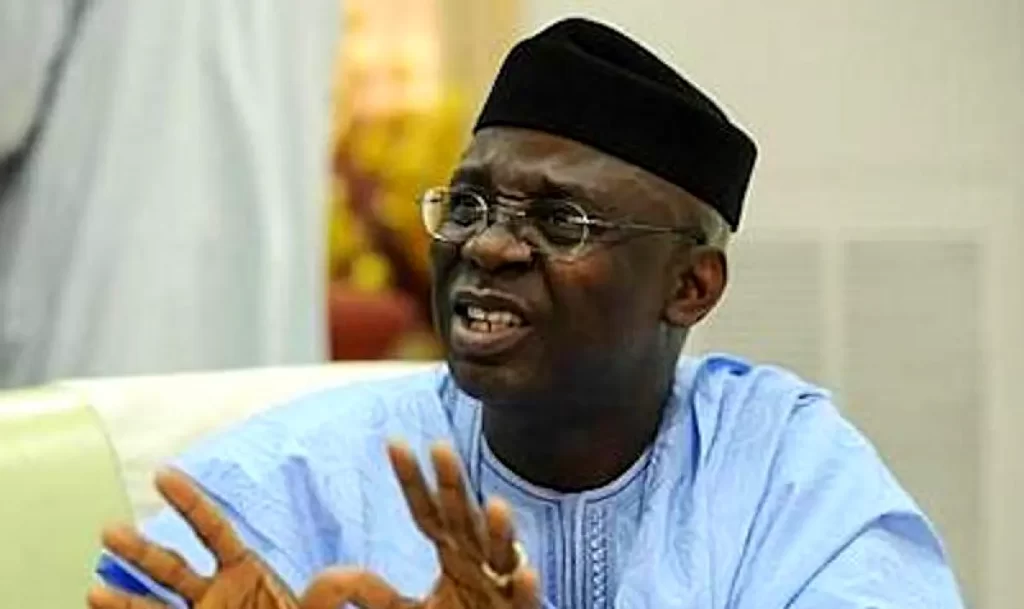
Pastor Tunde Bakare, the current Overseer of the Citadel Global Community Church and a former candidate for the presidency of the All Progressives Congress, urged Nigerians on Sunday to put nation-building before sentiments based on religion or ethics.
However, Bakare urged other Christian leaders to approach the subject at hand and the larger context surrounding the 2023 elections with decorum, clarity, and a continued optimism in the prospects of a united Nigeria.
Bakare responded to the APC’s choice of Muslims for the party’s presidential and vice presidential candidates by saying that now is the time to demonstrate maturity in decision-making and to give every Nigerian a sense of belonging.
In his words, “As standard-bearers of the message of the New Nigeria, we dream of a country in which every Nigerian will be judged by the content of their character, as Dr. Martin Luther King, Jr. once proclaimed in regard to his country, the United States of America, rather than by their ethnicity, political leaning, regional affiliation, or religious persuasion.
“We imagine a Nigeria in which there will be no such things as an indigenous person or a settler, only a Nigerian citizen. In our ideal Nigeria, zoning and federal character will become historical markers of our ascent to political maturity, and state of residence will take the place of state of origin on all official documents.
“We envision a Nigeria where every man and woman can run for any political office at any time without having to play the race card or rely on the “it’s our turn or their turn” argument.”
Bakare stated that he has chosen to serve as a link between Nigeria’s past, present, and future, adding, “We choose to do this because we believe that every Nigerian worthy of the name has a responsibility to contribute to the creation of the New Nigeria.”
The late Northern Nigerian Premier and Sardauna of Sokoto, Sir Ahmadu Bello, according to Bakare, recognized the moral responsibility to ensure that the diversity of viewpoints is given due consideration in public policy. As a result, he addressed the people of Northern Nigeria in a message of unity.
“As a result, Northern Nigeria’s political foundation was established on the tenets of inclusion and religious harmony,” he said. When military forces from Northern Nigeria overthrew the government in a countercoup in 1966, this value system of religious neutrality and inclusion was put into action. The military was confident enough to entrust a Christian from a Northern minority ethnic group with the care of the country. Nine years of General Yakubu Gowon’s rule kept Nigeria united in the midst of a Civil War.
This moment therefore calls on all Nigerians, from the North, South, East, and West, to reaffirm our dedication to nationhood, building on what was successful during the time of our founding fathers while also taking into account their flaws and mistakes as we strive to create a more perfect union.
“What we need is a New Nigeria that benefits all Nigerians, both Muslims and Christians. The goal of every engagement must be nationhood rather than division.
“As Christian leaders, we must also recognize that the Nigerian church is currently bearing the consequences of decades of false teaching that claimed Christians have no place in politics. The consequences of the church’s repeated failure to strategically engage in politics are what we are currently experiencing.
“The hostility that some of us who have ventured from the pulpit to the podium received, even from among our fellow Christian leaders, was always a pointer that a day would come when the church would experience the consequences of passivity, apathy, non-participation, and an anachronistic adherence to the Aaronic priesthood, especially long after the founder and perfecter of our faith had transitioned to the Melchizedek priesthood. Being unwilling to acknowledge this would be hypocritical.
“We must learn from our mistakes in order to move forward and reach 2023. At this point, Christian leaders must approach the candidates and their running mates with an open mind and on the basis of a clearly stated plan for nation-building and national development.
“At this point, Christian leaders must call a strategic summit to lay out the minimum standards for governance to which no Nigerian, Christian or Muslim, may be subjected. Such sector-by-sector discussions can get started with the SNG Charter and the Nigerian Charter for National Reconciliation and Reintegration, both of which were unanimously adopted by the delegates to the 2014 National Conference. Before September, when the campaigns will start in earnest, this must be completed. The Abuja Declaration for Nationhood may be the name given to the Charter when it is unveiled in Abuja.
Then, after carefully evaluating each presidential and vice presidential ticket based on key performance indicators centered around the Charter, Christian leaders must engage each candidate for president and their running mate. Compared to the emotional reactions that have dominated politics since the APC presidential candidate’s selection of a running mate, this would be a more mature, organized, and strategic way to respond to the situation.
“The time has come to shift the conversation from politics to governance for the Christians in Northern Nigeria who feel excluded by the selection of a Northern Muslim as running mate. The time has come to examine how politics affects development.